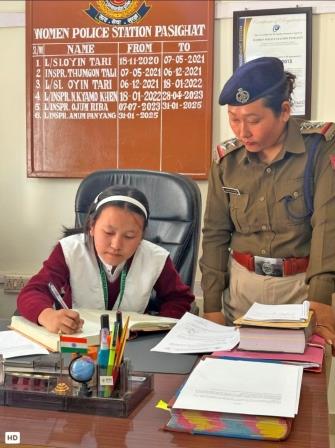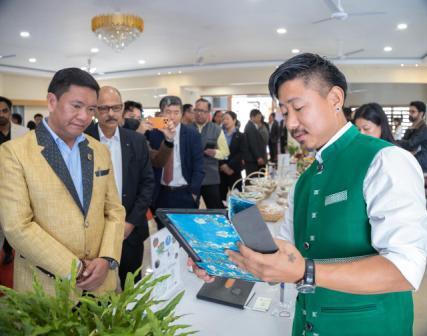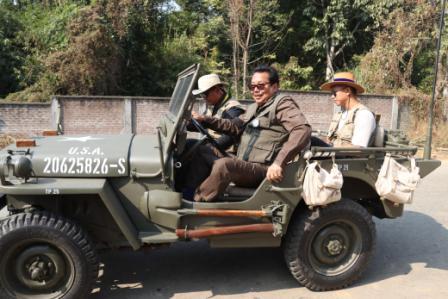-
Sona reviews PMGSY, VVP projects in Itanagar Circle
-
Lok Bhavan celebrates UP Diwas
-
 KGBV student leads WPS Pasighat on National Girl Child Day
KGBV student leads WPS Pasighat on National Girl Child Day
-
Meritorious students felicitated on National Girl Child Day
-
Awareness on POCSO held as part of National Girl Child…
-
Anini certifies 79 Nature Guides on National Tourism Day
-
 Startup success stories reflect potential of state’s youth: CM
Startup success stories reflect potential of state’s youth: CM
-
 Mein participates in vintage Willys Jeep Rally, inaugurates World War…
Mein participates in vintage Willys Jeep Rally, inaugurates World War…
-
DG Assam Rifles visits Khonsa Battalion
-
Governor advises DGP to take firm action on illegal migration
The much awaited response to the great economic calamity unleashed by the Covid-19 pandemic in the country arrived on Thursday and the principal takeaway from the slew of measures is the assurance that the poor of both rural and urban India will not have to starve during the coming three months. There is no doubt about the honesty of the intention, which is to extend a humanitarian hand to the economic fallout of the crisis which has just started pinching and as the 21-day lockdown progresses, will get more severe. Nevertheless, a certain amount of scepticism has been shared by various economists and political commentators that this magnanimous rollout might face certain bottlenecks when it comes to the actual delivery processes. But viewing things in the overall context well beyond the current crisis, it's a fact that limitations of outreach of governance has always been a fixed ailment including normal times. Keeping in mind this reality, it needs emphasising that the entire machinery of the government, with states as able cohorts, must act on a war footing.
The package amounting to a huge 1.7 lakh crore itself is nothing short of a mini budget which has tried to address the immediate needs of the economically marginalised segment who depend heavily on daily wages for their sustenance. Their jobs are now lost due to the total lockdown and fear is looming large that even if not due to coronavirus, death might seems unavoidable out of sheer hunger. It’s not just a face-off with the coronavirus alone and a great responsibility now awaits for the nation, which as a welfare state must save these people, who are great yet the little-recognised contributors to the economy all the time. With that intention, emphasis has been laid on two primary factors- food security and cash transfers and there are a host of promises ranging from 5 kg wheat or rice and 1 kg of preferred pulses for free every month for next three months that would cover 80 crore of the populace, free gas cylinders to 8 crore poor families for this period, direct cash transfers to bank accounts, Rs 50 lakh insurance per health worker, provisions for farmers, unorganised sectors’ labourers and many such. Casting a bird’s eye view, little complaints might apparently arrive, but when one glances over those large swathes which still remains out of the banking reach or the PDS map, Northeast for example, the question of reaching of benefits for these people in the true sense will arise.
The overall practicalities are really broad-spectrum in nature and the challenge must be to surpass them. The ultimate goal must be to ensure that the last person of 'marginalised India' is not left off from this humanitarian project.

Kenter Joya Riba
(Managing Editor)She is a graduate in Science with post graduation in Sociology from University of Pune. She has been in the media industry for nearly a decade. Before turning to print business, she has been associated with radio and television.
Email: kenterjoyaz@easternsentinel.in / editoreasternsentinel@gmail.com
Phone: 0360-2212313

